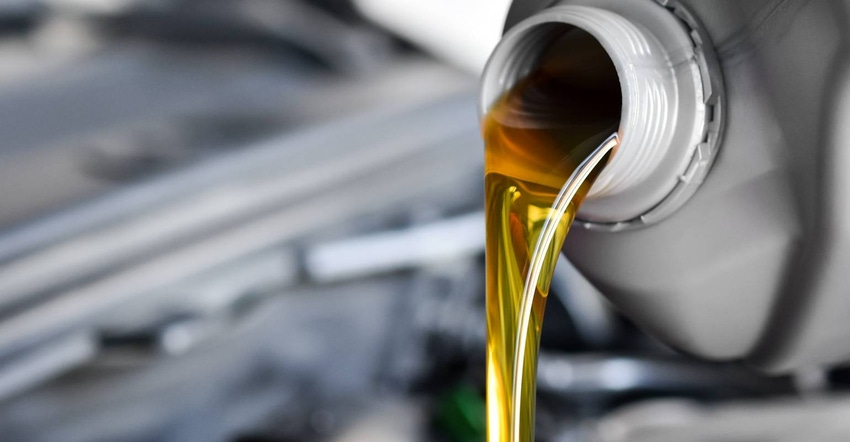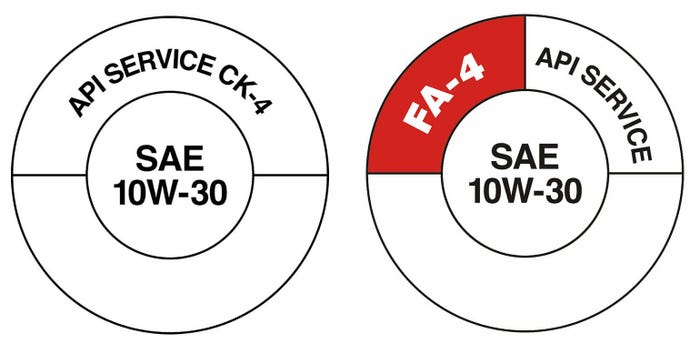June 19, 2017

The American Petroleum Institute has, for years, set the standards for the engine oil you need to keep machines running smoothly. In the past few months two new grades have come to market that require a little more knowledge than in the past.
CK-4 and FA-4 are the numbers to pay attention to. Note that these are not technically interchangeable, and that FA-4 is not backward compatible with older grades. Kevin Ferrick, senior manager, API engine oil program, spoke with Penton Ag about the standards and what farmers may want to know.
He noted first that not only does API work to set the standards, the organization also tests existing product to make sure manufacturers are meeting the API standard claimed on the container. "We've been licensing for more than 30 years, and for the last 24 years we've been auditing and testing both licensed and unlicensed oils," he said. "We want to be sure that if they have a license to meet standards and they claim to meet the standard [the company] actually does."
First, there's CK-4 which is an upgrade from CJ-4. When comparing CK-4 to CJ-4 the new grade offers enhanced performance in a number of areas, including oil aeration. The bubbles that can form in engine lubricant can reduce its ability to protect an engine, Ferrick said. "In newer engines, aeration control is an important parameter and CK-4 ensures that."

Labeling of two new oil standards clearly denotes the difference for FA-4, which is not compatible with older standards. CK-4 is also new, but is backward compatible with CJ-4
For farmers with existing diesel engines who use CJ-4, Ferrick explained that CK-4 will work just fine in those engines. "This oil is backward compatible," he said. With CK-4 even in older engines you'll get solid performance, while also having an oil that can run in newer, more demanding, reduced emission engines.
And the oil mark (the donut on oil bottles) is the same as the one used for CJ-4, which should create little confusion. CK-4, however, is blended to work with those higher efficiency engines and provide protection.
A different animal
Then there's FA-4, which is a new standard distinctly different from CK-4 and may not be suited for some equipment, Ferrick explained. "Farmers will want to get to know this grade and educate others about its use," he said.
If you have an engine that specs FA-4, you'll need to use that oil standard because CK-4 and FA-4 are not interchangeable. For on-road truck fleets, this may require a transition plan to make sure engines don't get the wrong oil. In farm equipment, the CK-4 type is most likely going to do the job, but if you find yourself with an engine that requires FA-4, plan accordingly.
FA-4 also provides aeration control and the other improvements provided by CK-4,. But this standard is different because it provides performance in viscosity grades intended for use in engines built in 2017 and beyond, Ferrick said. The aim is to provide higher fuel economy while still protecting the engine.
One factor that keeps FA-4 from being backward compatible, Ferrick said, is that older engines may not be built to work with lower viscosity grades. And the FA-4 grade name was chosen to avoid any CK-4 confusion - FA is different, for sure. Even the API donut on the container will be different with a red quarter-circle that basically says to the user: this is different. And should warn users to make sure they have the right oil grade in the engine they want to run on the farm.
You can learn more about the new grades by visiting dieseloilmatters.com.
About the Author(s)
You May Also Like






